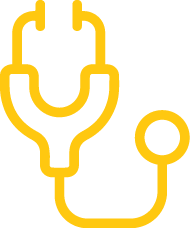Ward Neefs
Ward Neefs is a life-science professional with a strong focus on software, data, and digitalization within regulated pharmaceutical and MedTech environments. At QbD Group, he combines his background in bio-engineering and artificial intelligence to support organizations in the development, validation, and implementation of complex digital systems.
Biography
Ward Neefs holds a master’s degree in Bio-engineering (bio-nanotechnology) and a second master’s degree in Artificial Intelligence, both obtained at KU Leuven. His interest in software and data-driven solutions in life sciences emerged during his studies and continues to shape his professional career.
Since joining QbD Group, Ward has contributed to a wide range of digital transformation and software validation projects. His experience includes work on Master Batch Record (MBR) implementations for COVID vaccine production, as well as supporting MES software deployment and validation from a business analyst role at Pfizer. To further extend his manufacturing applications knowledge, Ward also worked on a project aimed at structurally redesigning a Distributed Control Systems (DCS) code base to increase flexibility and reduce redundancy at a novel product launch site.
Currently, Ward is extensively involved in multiple Software as a Medical Device (SaMD) projects, supporting medical device and in-vitro diagnostic companies with the implementation of compliant software development and validation processes, taking into account regulatory alignment and quality considerations. In parallel, he is active on several Computer System Validation (CSV) projects, focusing on ensuring compliance, data integrity, and system robustness.
Ward regularly shares insights on the role of AI and software in regulated life sciences, both internally and externally. He has contributed to QbD Group’s blog and internal knowledge-sharing events, and has participated in panel discussions on the impact of the AI Act in life sciences and medical writing, including sessions at the EMWA 2024 Spring Conference in Valencia.

Ward's key areas of expertise
Artificial Intelligence in Pharma
Applying AI to improve pharmaceutical processes, systems, and decision-making.
MES & Batch Record Implementation
Digitalizing manufacturing operations through structured data and automation.
Process Automation
Digital Health & Data Strategy
Combining engineering expertise with AI to support digital health innovations.

Ward Neefs


Explore our expert content















.jpg?width=1600&height=900&name=Webinar%20-%20ATMP%20Supply%20Chain%20Navigating%20the%20Challenges%20and%20Exploring%20the%20Vein-to-Vein%20Strategy%20-%20QbD%20Group%20(2).jpg)
